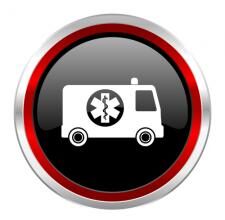EXCLUSIVE POST – At the Medicine 2.0 Summit at Stanford in September, there was an interesting juxtaposition of these three concepts. The discussion of self-efficacy came from a presentation from the Stanford University School of Medicine on “Cancer Thriving and Surviving: An On-line Workshop That Improves Quality of Life.” [http://www.medicine20congress.com/ocs/index.php/med/med2011/paper/view/592] The program uses six week, peer led, cancer survivor workshop threaded discussion boards where part
EXCLUSIVE POST – At the Medicine 2.0 Summit at Stanford in September, there was an interesting juxtaposition of these three concepts. The discussion of self-efficacy came from a presentation from the Stanford University School of Medicine on “Cancer Thriving and Surviving: An On-line Workshop That Improves Quality of Life.” [http://www.medicine20congress.com/ocs/index.php/med/med2011/paper/view/592] The program uses six week, peer led, cancer survivor workshop threaded discussion boards where participants can interact. “There were also sections for keeping individual records, links to other websites, and an internal post office for messaging individual participants.” The design of the workshop had its basis in self-efficacy theory, and one of the primary outcomes was Chronic Disease Self-Efficacy Scales developed at Stanford. [http://patienteducation.stanford.edu/research/secd32.html] Unlike most quality of life scales and activity of daily living measures used in chronic disease research, these scales measure how effectively one is in managing disease and stress.
Self-efficacy theory was developed by Bandura as a part of the growing field of cognitive psychology in the 1970s. The theory proposed that people are not victims of environmental factors but that “individuals possess self-beliefs that enable them to exercise a measure of control over their thoughts, feelings, and actions.” [http://www.des.emory.edu/mfp/eff.html] Bandura thought that feelings of self-doubt could be overcome based on one’s focusing on abilities that they feel confident and competent about. This applies well to the context of chronic disease. Helplessness in the face of illness promotes feelings of self-doubt, but focusing on tasks which one is able to do to improve the outcome is a way of promoting self-efficacy.
This is exactly what two other groups represented at the conference are focused on: the Quantified Self movement [http://www.medicine20congress.com/ocs/index.php/med/med2011/paper/view/769] and e-Patient advocates. Both take advantage of new technologies including social media and mobile apps to enhance self-efficacy.
Quantified Self [http://quantifiedself.com/about/] is a group which “is a collaboration of users and tool makers who share an interest in self knowledge through self-tracking.” They sponsor meetups in cities around the world which are show and tell about individuals’ methods often using mobile and web apps as tools for quantifying their lives. However, the quantification is not an end to itself but to self-efficacy. Self-tracking, particularly for those with chronic medical conditions, is a method for one to become more effective in managing one’s illness. For instance, an insulin-dependent diabetic can closely or now continuously monitor blood sugar levels to maintain close control and thereby gain a sense of self-efficacy against a disease with potentially progressive complications. Monitoring diet and exercise in addition can contribute to the sense of slowing the progression of the disease, which is key in the management of most chronic illnesses. Monitoring sleep through a mobile phone connected to a sleep monitoring device allows one to know how sleep is affected by diet, activities and medication on a nightly basis. In a blog post on the Quantified Self website from 2007, self efficacy is defined and using quantified self for improving self-efficacy. [http://quantifiedself.com/2007/11/what-is-selfefficacy/]
The other group represented at the conference was e-Patients. E-Patients advocate for “the legitimacy of lay medical competence and autonomy” [http://e-patients.net/e-Patients_White_Paper.pdf , page XI]. Chronic or life-threatening illnesses are the real enemy of self-efficacy. Being diagnosed with cancer, for instance, can destroy confidence, instill fear and paralyze emotions and actions. Traditional medicine can also undermine self-efficacy when it obstructs the patient from information seeking and full participation in medical treatment decisions and care. Social media is seen as building self-efficacy when the e-patient enters online communities of that have in common the same condition. For instance, the debilitating effects of neurologic disease like Amyotrophic lateral sclerosis, with progressive paralysis and few effective treatments continually challenges self-efficacy. By joining a community such as, PatientsLikeMe [http://patientslikeme.com], one can find out how others are coping with similar symptoms, what treatments work and how others experience disease progression and receive social support. Suddenly a life-threatening disease becomes more manageable and self-efficacy is restored.
So whether one identifies more with Quantified Self or e-Patients, developing self efficacy is a by-product of the support received and the enabling tools which are now pervasive. Continuous support through social media or meetups, mobile apps that provide health reminders and help one monitor disease and wellness, build self-efficacy in ways which Bandura could not have imagined. Future clinical trials using these types of communities and mobile apps, such as the cancer support study reported at the conference, may lead to the mainstreaming of these interventions as routine in the management of chronic and life-threatening illness.






